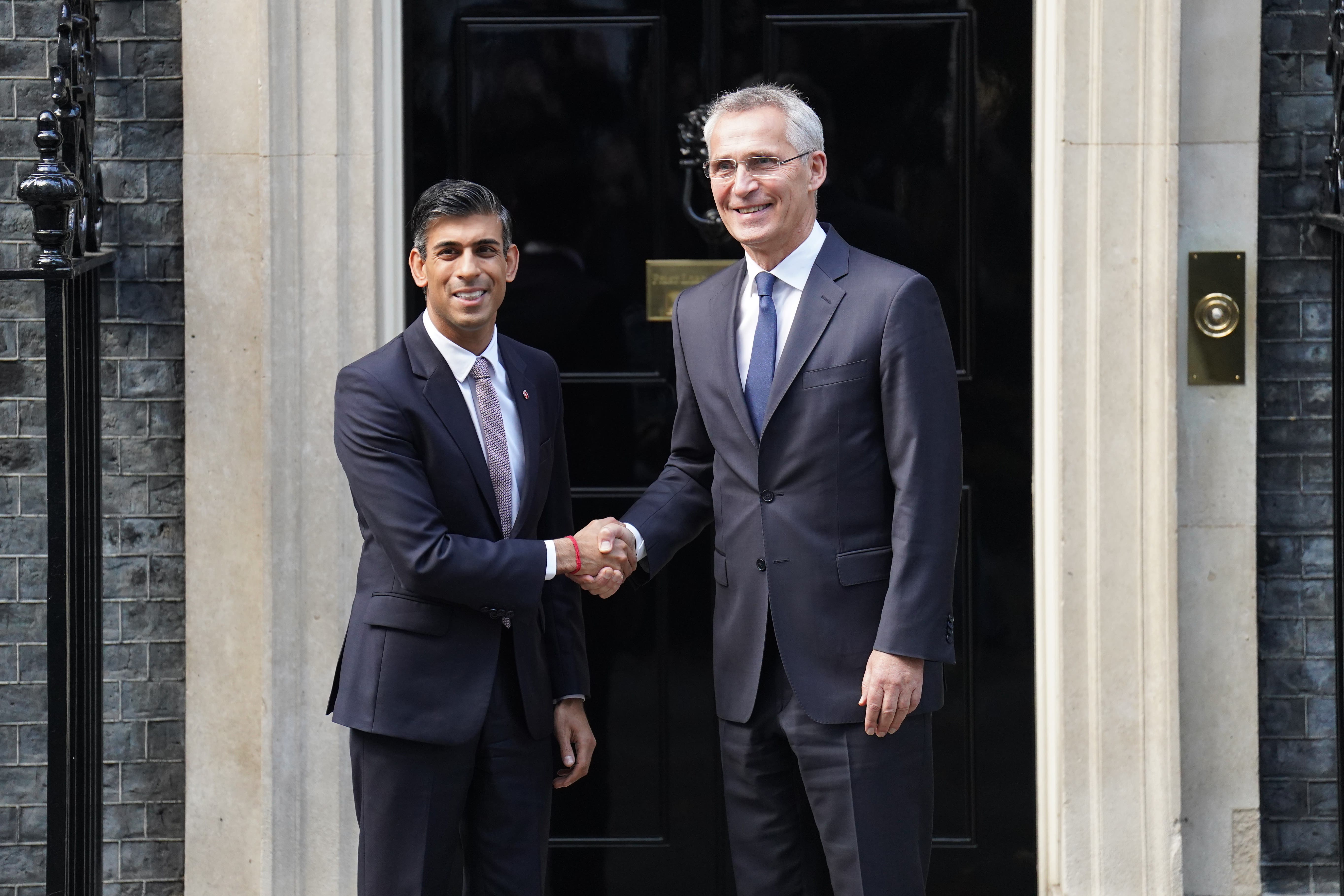Jens Stoltenberg’s term as Nato chief extended after Ben Wallace’s hopes dashed
Prime Minister Rishi Sunak praised the leadership shown by Mr Stoltenberg in Nato’s response to Russia’s invasion of Ukraine.

Nato secretary-general Jens Stoltenberg has been handed another year in charge of the alliance after potential successors including Defence Secretary Ben Wallace failed to gather support.
Rishi Sunak praised Mr Stoltenberg’s leadership of Nato after his term was extended again.
The Prime Minister said the alliance has “evolved to meet new threats” and been “steadfast in support of Ukraine” under Mr Stoltenberg.
Mr Stoltenberg, a former Norwegian prime minister who has been Nato’s top civilian official since 2014, said he was “honoured” by the decision and “in a more dangerous world, our alliance is more important than ever”.
His term was due to expire last year but it was extended after Russian President Vladimir Putin’s invasion of Ukraine in February 2022.
Nato’s leaders will meet in Lithuania next week, where a decision on a successor was due to be made.
Mr Wallace had pushed to become the first Briton to lead the alliance since 2003, but lacked the necessary support – particularly from the US, the largest military power in Nato.
He told The Economist “it’s not going to happen” and there are “a lot of unresolved issues in Nato”.
At the regular Cabinet meeting on Tuesday, Mr Sunak said Mr Wallace had been an “outstanding candidate” for the role.
The Prime Minister’s official spokesman said Mr Sunak told the meeting of his top team that the Defence Secretary is “widely respected among world leaders and the only person at non-leader level to be considered” for the job of leading the alliance.
But the spokesman said Mr Sunak believes Mr Stoltenberg has done an “excellent job” leading Nato and “will continue to have the UK’s support” in the role.
US President Joe Biden made it clear to Mr Stoltenberg that he would welcome him sticking around longer — particularly with no end in sight to the war in Ukraine and with the ongoing challenge of getting Sweden approved as a member of the alliance.
The lack of a consensus around a potential successor meant an extension of Mr Stoltenberg’s term had become the most likely scenario.
Many Nato countries were keen to name a woman to the top post, with Danish leader Mette Frederiksen thought to be a favourite after a meeting with Mr Biden last month but she ruled herself out.
The president of the European Commission, Ursula von der Leyen also ruled out her candidacy, while Dutch Prime Minister Mark Rutte was also rumoured to be in the running.
It is the fourth time Mr Stoltenberg has had his mandate extended and he is the second-longest serving Nato secretary-general after Joseph Luns, who spent almost 13 years in the job from 1971.
Bookmark popover
Removed from bookmarks